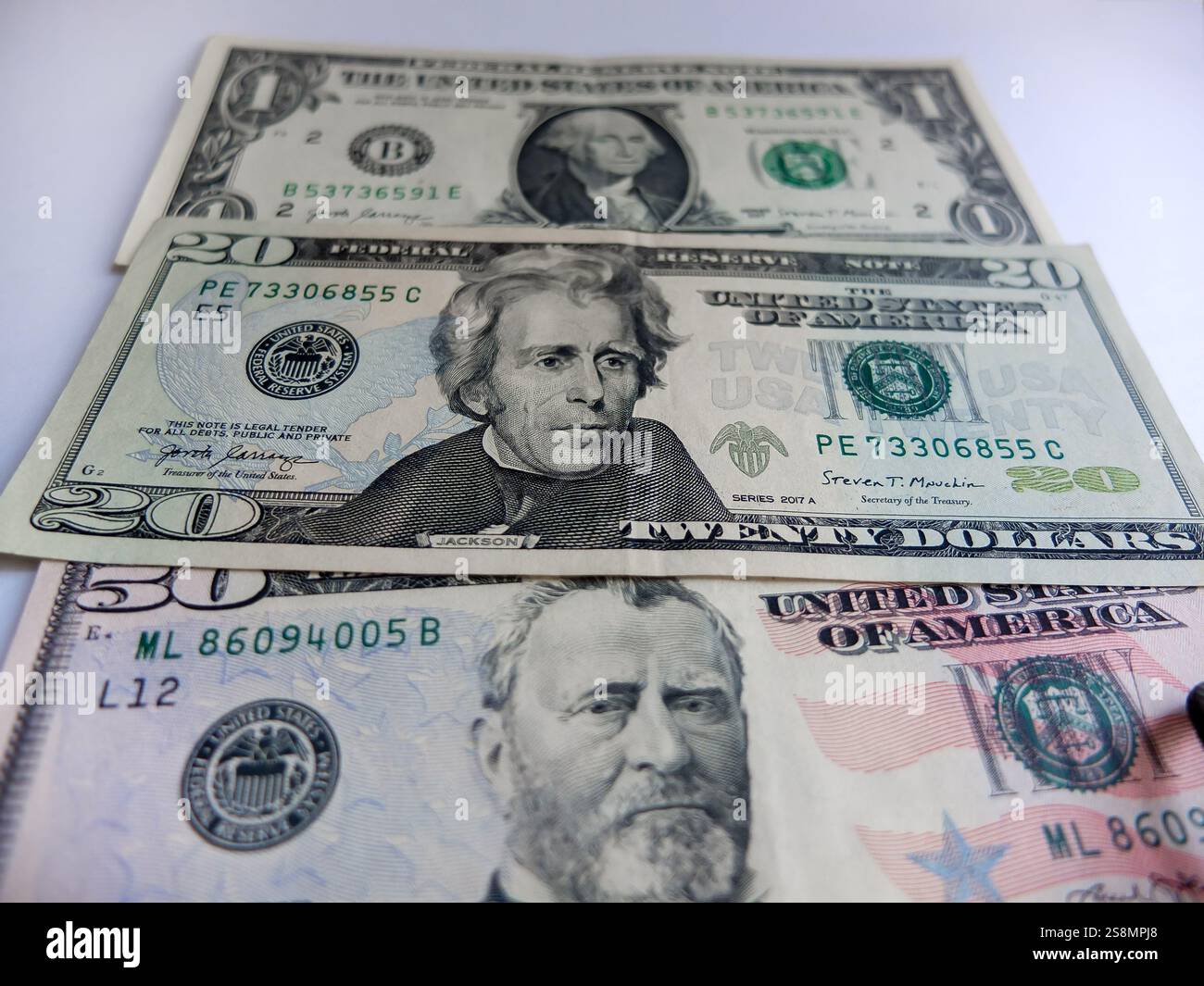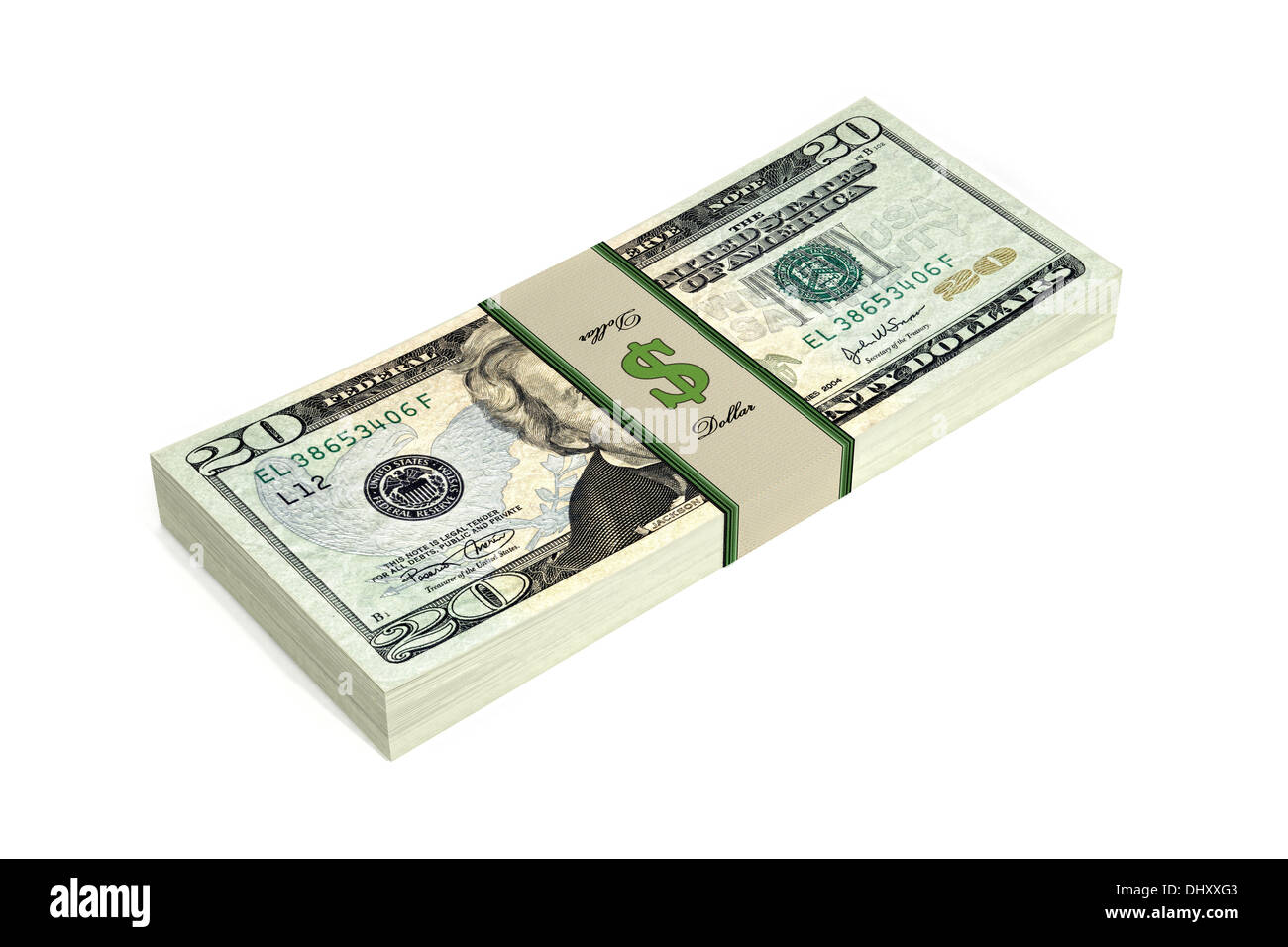📖 Article Content 📖
Have you ever stopped to think about what 100,000 of anything truly looks like, especially when we are talking about money? It's a figure that gets thrown around quite a bit, whether it's about how many followers someone has online or a certain amount of cash. But when we start picturing that particular sum in twenty-dollar bills, it suddenly takes on a whole new shape, a physical presence that is, you know, quite different from just a number on a screen.
People often come across these sorts of abbreviated money figures in their daily routines. You might see something like 10K, or maybe 10M, perhaps even 100K, or 1000K, and wonder what those letters actually stand for. It's a way of shortening bigger numbers, which is pretty common in many areas of life, and it helps everyone communicate more quickly, in a way. This system is seen everywhere, from social media counts to how much funding a business might have.
So, we are going to spend some time looking into what exactly 100k means, particularly when it is thought of in terms of twenty-dollar bills. We'll also explore where you might see this kind of figure pop up, and, you know, give you some extra details about the letter 'k' itself. It's all about making those big numbers feel a bit more real and, you know, easier to grasp, especially for those of us who like to understand the tangible side of things.
- Sabrina Carpenter Lizzie Mcguire
- One Piece Restaurant Orlando
- Lcs Pallets Liquidation
- What Is A Roscoe In The Waistband
- Blake Whitten Age
Table of Contents
- What Does 100k Really Stand For?
- How Many Twenty Dollar Bills Make Up 100k?
- Where Do We Often See "100k" Pop Up?
- Is 100k a Lot of Money?
- Beyond Money - Other Uses for 100k
- Considering a Place Like 1800 E Capitol Ave in Bismarck, ND
- What is the Full Form of K in 100k?
- Understanding the Number Form of 100 Thousand
What Does 100k Really Stand For?
When you encounter "100k," it's a shorthand that, you know, people use pretty often these days to talk about a specific quantity. That little "k" at the end, it actually stands for "kilo." Now, "kilo" is a word that means a thousand. So, in plain terms, if you see 100k, what it truly means is one hundred multiplied by one thousand. That gives you the total of one hundred thousand. It's a way of making big numbers a bit more compact and, you know, quicker to write or say, which is really helpful in a lot of situations. For instance, if someone mentions they have 100k followers on a social media site, they are saying they have one hundred thousand people following them. It's pretty straightforward once you get the hang of what that "k" is doing there, you know, acting as a placeholder for three zeros. It makes things so much tidier, especially when you are trying to keep track of larger figures, or just discussing them casually with someone. It's a common practice that has, you know, become quite universal in how we talk about numbers that get, well, a little bit big for everyday conversation.
How Many Twenty Dollar Bills Make Up 100k?
This is where things get a little bit interesting, especially if you like to think about numbers in a more tangible way. If we are talking about 100k, which we now know is 100,000, and we want to imagine that amount in twenty-dollar bills, we just need to do a simple calculation. You take the total amount, which is 100,000, and you divide it by the value of each bill, which is 20. So, 100,000 divided by 20 gives you exactly 5,000. That means you would have five thousand individual twenty-dollar bills. It's quite a stack when you really think about it, isn't it? That number, 5,000, starts to make the concept of 100k feel a bit more real, like something you could actually, you know, hold or count out, even if it would take you quite some time to do so. It really puts the size of that sum into a different kind of perspective, more so than just seeing the digits on a screen or hearing someone say the number aloud. This is, in a way, the core of what we are trying to picture here, this physical representation of a fairly large amount of money.
The Physical Aspect of 100k in 20 dollar bills
Now, let's really picture those five thousand twenty-dollar bills. Imagine them all neatly stacked up. A single twenty-dollar bill, you know, is pretty thin, but when you put five thousand of them together, they start to take up some serious room. A typical US dollar bill, more or less, weighs about one gram. So, five thousand of them would weigh around five thousand grams, which is about five kilograms, or just over eleven pounds. That's not, you know, a tiny amount of weight to carry around. It's like carrying a fairly heavy bowling ball, or perhaps a small bag of groceries. In terms of size, a stack of 100 bills is usually about half an inch thick. So, if you have 5,000 bills, that would be fifty stacks of 100 bills. That would make a stack that is about twenty-five inches tall, or roughly two feet. So, you're looking at a pretty tall stack of money, you know, if it were all in one column. To transport that much cash, you would probably need a decent-sized briefcase, or perhaps a small duffel bag. It certainly wouldn't fit in your wallet, or even, you know, a regular purse. It gives you a sense of the actual bulk of 100k in 20 dollar bills, making it far more tangible than just a figure on a bank statement, you know, which is really something to consider.
Where Do We Often See "100k" Pop Up?
The term "100k" shows up in so many different parts of our lives these days, it's actually quite interesting to observe. For instance, as my text points out, you see it a lot when people talk about their income. Someone might say their salary is 100k, meaning they earn one hundred thousand units of currency per year. It's a very common way to express earnings, you know, especially in conversations where precision down to the last dollar isn't the main point. Then there's the world of social media, where "100k" is practically, you know, a badge of honor for many. When someone hits 100k followers on platforms like Instagram or TikTok, it means they have reached a pretty significant audience of one hundred thousand people. This is often seen as a big milestone for content creators and influencers, signaling a certain level of reach and popularity. Beyond personal income and social media, the business world also uses "100k" quite frequently. It could refer to a company's sales figures, like 100k in revenue for a quarter, or perhaps the amount of funding a startup has managed to secure. If a new business gets 100k in seed money, that means they have one hundred thousand dollars to get things going, which is, you know, a pretty good start for many ventures. So, you see, this abbreviation is pretty much everywhere, making it easier to discuss these larger quantities in a variety of settings, which is, you know, really practical.
Is 100k a Lot of Money?
Whether 100k is considered "a lot" of money really depends on who you ask and, you know, what context you are thinking about. For some people, 100k, or one hundred thousand, might represent a significant life-changing sum. It could be enough to pay off a substantial chunk of student loans, or perhaps, you know, make a very good down payment on a house. It might even be enough to fund a few years of college education, depending on where you go, or to buy a really nice new car, or even a couple of pretty decent used cars. For others, particularly those living in very expensive areas or with very high financial obligations, 100k might feel like a good start, but perhaps not an overwhelmingly large amount. It's all relative, you know, to individual circumstances and the cost of living in a particular area. For instance, in some places, 100k might buy you a small apartment, while in other, less expensive locations, it could be enough for a comfortable family home. So, the perception of its value changes quite a bit based on personal situations and, you know, the economic landscape around you. It's not a simple yes or no answer, because what's "a lot" for one person might be just "enough" for another, which is, you know, an interesting aspect of how we view money.
Beyond Money - Other Uses for 100k
While we have been talking a lot about money, the figure "100k" isn't only used for financial amounts. My text, for example, mentions that "Running 100k is a getting deep into ultra territory." This is a completely different kind of 100k, and it refers to distance. A 100k run means running one hundred kilometers. For those who might not be familiar with kilometers, one kilometer is roughly 0.62 miles. So, a 100k run is about 62 miles. That is, you know, an incredibly long distance to run, far beyond a typical marathon, which is about 26.2 miles. People who take on 100k runs are usually called ultra-runners, and these events often take place on trails, sometimes over very challenging terrain, and can take many, many hours, or even a full day, to complete. It truly tests a person's endurance and mental toughness. So, when you hear "100k" in this context, it has nothing to do with cash, but rather with an extreme physical challenge. It just goes to show how versatile that "k" abbreviation is, allowing us to talk about thousands of units, whether they are dollars, followers, or, you know, units of distance, which is, you know, quite a neat trick for language.
Considering a Place Like 1800 E Capitol Ave in Bismarck, ND
Sometimes, when we talk about large figures like 100k, it helps to ground them in real-world examples, even if the connection isn't always about the exact value of 100k itself. My text mentions a specific address: 1800 E Capitol Ave, Bismarck, ND 58501. This particular spot is home to condos and rental apartments, and it's located in Burleigh County, in the city of Bismarck, which is the historic capital of North Dakota. The text describes it as having units that are, for example, 820 square feet, with one bed and one bath. Now, while the text doesn't say that this property is worth exactly 100k, or that the rent is 100k, it's the kind of place where, you know, discussions about property values, investments, or even large sums of money for things like down payments or renovations, would certainly involve figures that could be in the hundreds of thousands. For instance, a property in that area might have a sale price in the 100s of thousands, or perhaps a larger building at that address could represent an investment worth several 100k. It just serves as a real-world example of a location where numbers like "100k" might pop up in conversations related to real estate, showing how these figures are part of our everyday environment, you know, in various ways.
What is the Full Form of K in 100k?
Let's circle back to that little letter 'k' that we see so often attached to numbers, especially when we are talking about 100k. As we discussed earlier, the letter 'k' is a symbol for "kilo." This term, "kilo," comes from the Greek word "chilioi," which means a thousand. It's a standard prefix used in the international system of units, which is a system of measurement used almost everywhere in the world. So, when it's put in front of a unit, it means that unit is multiplied by one thousand. For example, a kilogram is one thousand grams, and a kilometer is one thousand meters. In the same way, when you see 'k' after a number in a financial or numerical context, it simply means "times one thousand." So, for 100k, the 'k' stands for that factor of one thousand, making it 100 times 1,000. It's a very efficient way to write and speak about larger numbers without having to, you know, write out all those zeros every single time. This simplification is why it's so widely adopted across different fields, from science to social media, and, you know, even in everyday talk about money. It just makes things a little bit easier for everyone to understand quickly, which is, you know, quite helpful.
Understanding the Number Form of 100 Thousand
When we talk about "100 thousand" in its full numerical form, it's written as 100,000. That comma after the first three digits is there to help us read the number more easily, especially when it gets larger. It groups the digits into sets of three, making it simpler to see the thousands, millions, and so on. So, 100,000 clearly shows us one hundred followed by three zeros, which is how we represent one hundred thousand. My text also points out that this figure, 100,000, can be abbreviated as 100k. This abbreviation is, you know, incredibly common and serves a very practical purpose. It saves space, makes text less cluttered, and is quicker to type or write. Think about how often you see it on a news headline or in a social media post; it's a quick way to get the idea across without using up too much room. Whether you see it written out as 100,000 or shortened to 100k, both forms refer to the exact same quantity: one hundred thousand units of whatever is being discussed. It's just two different ways of saying the same thing, with the abbreviated version being, you know, a bit more casual and widely used in many modern contexts, which is, you know, pretty much how language evolves, isn't it?
We've explored what 100k truly means, especially when you consider it in twenty-dollar bills, calculating the impressive stack of 5,000 notes that would be. We also looked at how this "100k" figure pops up in various parts of life, from income and social media numbers to business funding and even the incredible distances covered in ultra-running. We touched on how the term's significance can shift depending on your perspective and where you live, and we clarified that the 'k' simply stands for 'kilo,' or one thousand, a universal way to simplify large numbers. Finally, we saw how a real place like 1800 E Capitol Ave in Bismarck, ND, fits into the broader picture of where such figures might be discussed in property matters, showing that these numbers are a part of our everyday surroundings.



